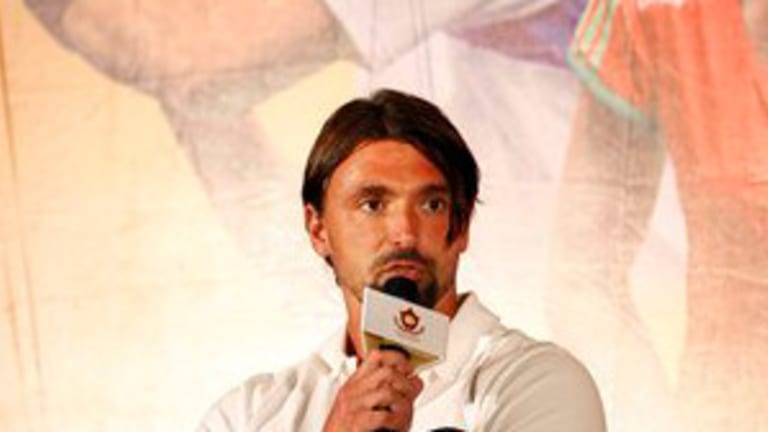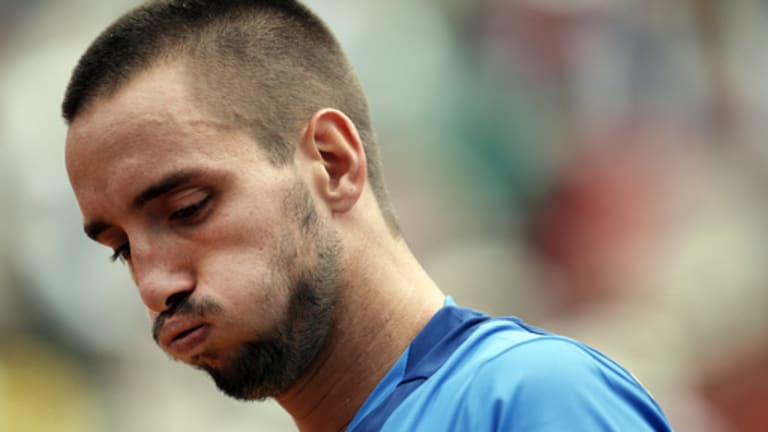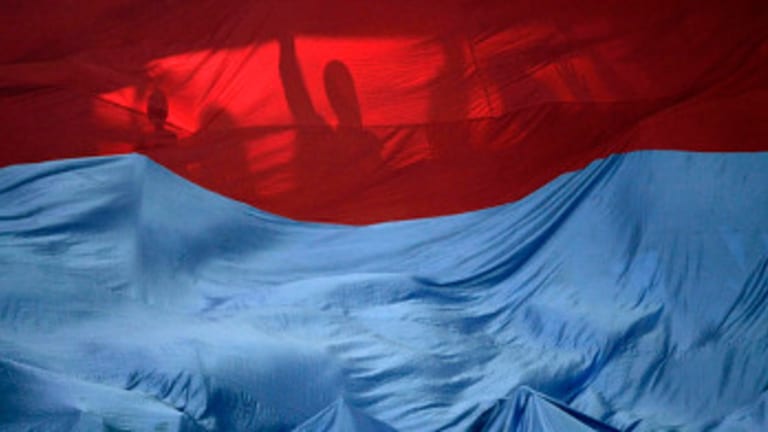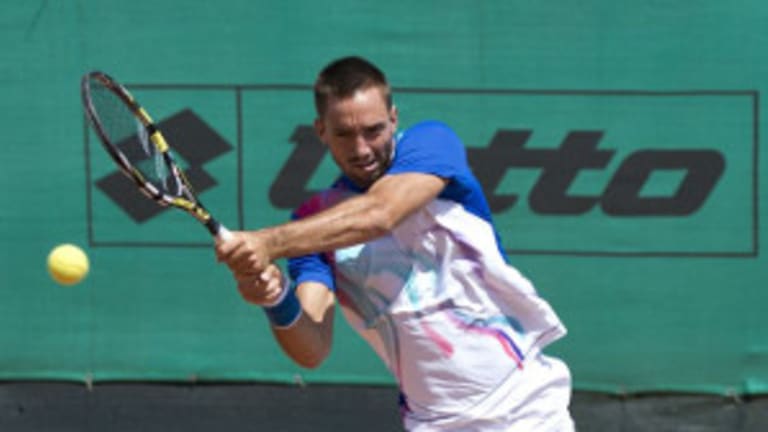“The tough part is that I’m starting from zero,” Viktor Troicki says as he wraps up a practice session in the sleepy alpine town of Gstaad, which plays host to this week’s Swiss Open, the scene of his comeback from a controversial 12-month doping ban. “I won’t have any protected ranking or anything so that’s going to be hard. But I’ve made it to the top once so I’m ready to do it again.”
Troicki pauses. His statement of intent is imbued with a quiet determination, stemming from the events of 2013 which he and many others still regard as a deep injustice.
Wind back 15 months to the 2013 Monte Carlo Masters. Troicki had just been comprehensively outplayed in the first round, but as a matter of procedure, he still needed to complete a blood test. It’s a routine process for most players, but Troicki has a deep-seated phobia of needles which makes every test a trauma. Feeling unwell, he requested it to be postponed to the following morning.
Troicki and his team say that the on-site doping control officer agreed, he took the test next day, and thought nothing more of it. As with every other test taken throughout his career, the results returned negative. But to his horror, two days later he received an email from the ITF informing him that he faced a potential two-year ban for allegedly refusing to take the test on time.
Three months later, he was banned from tennis for 18 months. An ITF tribunal panel refuted his claim that their official had told him he could postpone it. "Her response was that this was not a matter upon which she could advise the player," the panel said.
Looking back, Troicki is still in disbelief at how the trial proceeded. “It was amazing how the lawyers were going really hard for the maximum suspension,” he says. “I’m a tennis player and yet this was coming from the International Tennis Federation for whom I’ve played a lot of tournaments. That was really disappointing. I made my name through tennis and then they do this to me.”
He turned to the Court of Arbitration for Sport, but when the hearing took place in October, it came down to his word against the ITF. Lacking requisite evidence to overturn the ban altogether, it was merely reduced to 12 months.
“The funny thing is that the doctor who gave me the wrong instructions, she continued working,” he says. “She just continued doing her job and that’s because she doesn’t have rules. We players have rules and she just has instructions to follow. For me that’s kind of silly. She made a mistake and she hasn’t been sanctioned by anyone.”
Troicki’s feelings were shared by Novak Djokovic. The pair have known each other since Djokovic was eight years old, and at last year’s World Tour Finals he released an emotional statement in support of his friend.
“He gave me the most support out of all the players,” Troicki said. “He’s shown that he’s a great friend and even though he faced problems because he was supporting me, he still stood by me and tried to help as much as he could. He was one of the first guys to publicly support me and I will never forget that.”



